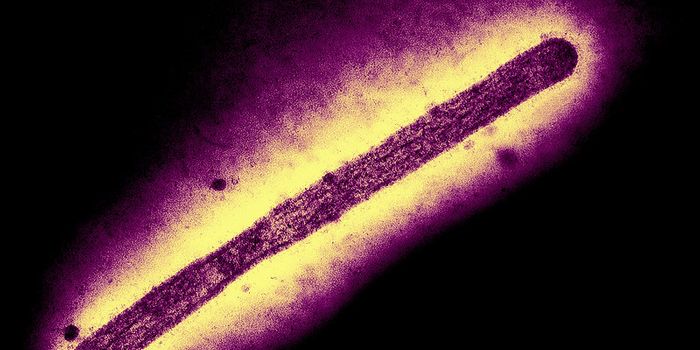Epstein-Barr Virus Vaccine Enters Phase 1 Trials
The Epstein-Barr virus (EBV) infects most people; it's thought that when we're young, about 90 percent of us acquire an EBV infection at some point. Most people are infected though saliva, and the virus is often asymptomatic. But it can cause mononucleosis, which is sometimes known as the 'kissing disease.' Mono may persist in about 10 percent of patients and cause more serious complications in about one percent of those affected. EBV can also hang around in the body in B cells. As the infection persists, it seems to cause other diseases in some people. EBV has been linked to cancers including Burkitt lymphoma, and nasopharyngeal carcinoma, and recent studies have suggested that EBV can cause multiple sclerosis.
Scientists have now developed a nanoparticle-based vaccine for EBV, which has entered Phase 1 clinical trials. The vaccine takes adavantage of four viral proteins, or more specially, the viral glycoproteins gp350 and gH/gL/gp42, which help the virus infect B cells. These nanoparticle-based proteins are applied with an adjuvant, an additional molecule that helps boost the immune response to vaccines. The vaccine exposes the body to the viral glycoproteins to elicit an immune response against those proteins and stop infection from occurring. When the vaccine was tested in mouse, ferret, and nonhuman primate models, it stopped EBV from infecting either B cells or epithelial cells.
In additional work, the researchers used a humanized mouse model, which has an immune system that's meant to mimic ours, to show that EBV infection could be prevented with the vaccine in those animals as well.
These findings have been reported in Science Translational Medicine, and a clinical trial (Identifier NCT04645147) is now being planned. For now, only 40 adults will be enrolled, none of whom can have evidence of a previous EBV infection. A series of three injections will be given over several months. The trial may last as long as four years. Learn more about the trial from the National Institutes of Health.
“A vaccine that could prevent or reduce the severity of infection with the Epstein-Barr virus could reduce the incidence of infectious mononucleosis and might also reduce the incidence of EBV-associated malignancies and autoimmune diseases,” said NIAID Director Anthony S. Fauci, M.D.
Moderna is currently developing an mRNA vaccine for Epstein Barr as well.
Sources: NIH, Science Translational Medicine









